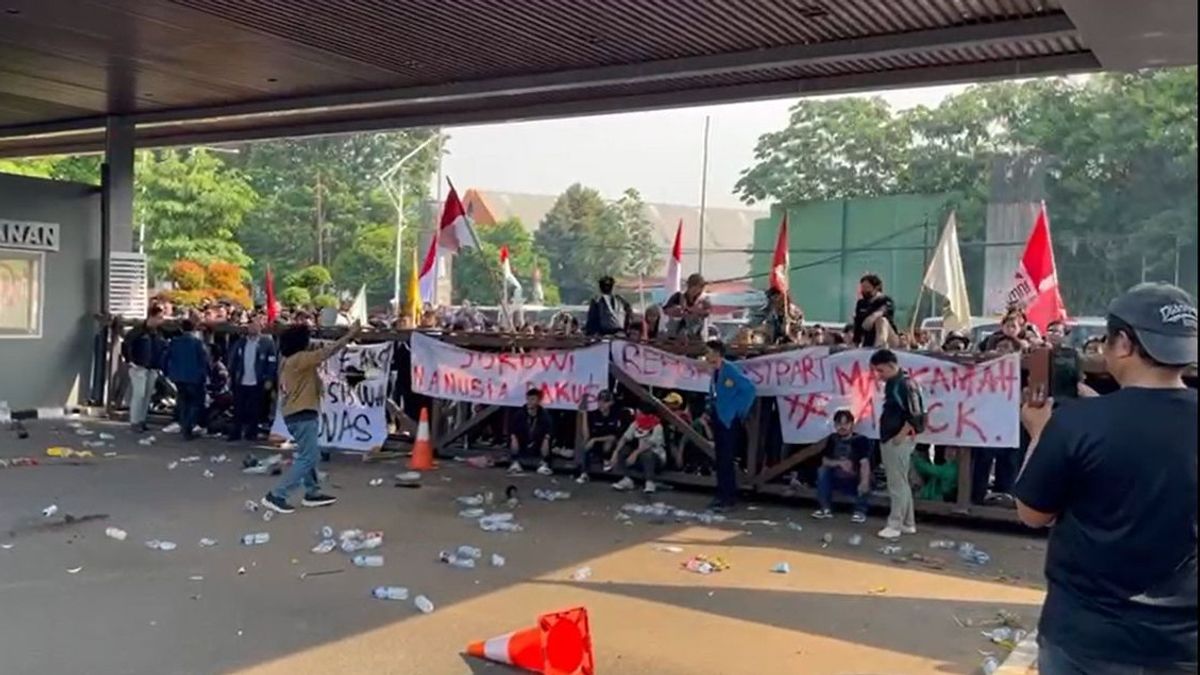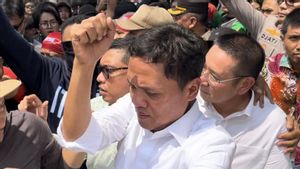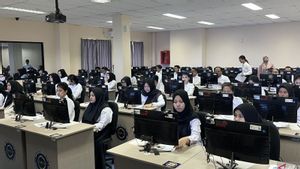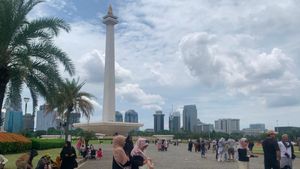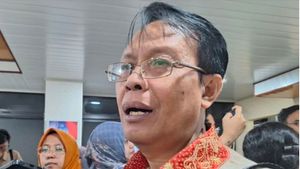JAKARTA - The DPR has decided to cancel the revision of the Pilkada Law which was previously discussed at the Legislative Body (Baleg) level. Member of the DPR Didi Irawadi Syamsuddin revealed the reason why the Pilkada Bill should have been canceled.
"The Pilkada Bill was discussed in Baleg in a very short time and without involving public participation, it is natural that it has drawn rejections ranging from academics, civil society, students to the wider community. There are concerns that this bill is driven by the political interests of certain parties," said Didi, Friday, August 23, 2024.
Previously, the DPR Baleg agreed to revise the Pilkada Law, the material of which was not in line with the decision of the Constitutional Court (MK). Baleg's attitude also drew public turmoil, until finally people from various circles held demonstrations, including in front of the DPR Building.
Didi assessed that the process of discussing lightning at the DPR Baleg which did not accommodate all decisions of the Constitutional Court in the Pilkada Bill had hurt the hearts of the people.
"The RU discussed in Baleg is considered not to involve sufficient public participation. Also, the legislative process that is not transparent or too fast can ignore input from various stakeholders, such as voters, regional head candidates, and NGOs, which may have important views on election rules," said the former member of the Legislative Council.
The process of discussing the Pilkada Bill at the DPR Baleg is known to be held in less than 7 hours. The meeting was held on Wednesday, August 21, 2024, at 10.00 WIB and ended at 16.55 WIB with a decision that was not in line with the mandate of the Constitutional Court.
The Constitutional Court granted part of the lawsuit against the Pilkada Law and stated that parties or coalitions of political parties participating in the election could nominate candidates for regional heads even though they did not have DPRD seats.
Through decision Number 60/PUU-XXII/2024, the Constitutional Court changed the rules in Article 40 of the Pilkada Law which regulates the threshold for candidacy in the Pilkada. The Constitutional Court stated that Article 40 paragraph (3) of the Pilkada Law was unconstitutional.
With the Constitutional Court's decision, the threshold for submitting candidate pairs that will contest the Pilkada simultaneously changes from 20 percent of the DPRD's seat acquisition or 25 percent of the Legislative Election's valid votes to 6.5 percent to a maximum of 10 percent which is classified based on the number of Permanent Voter Lists (DPT) for each Province and Regency/City throughout Indonesia.
Not only about the threshold for candidacy, but the Constitutional Court also decided on a lawsuit regarding the age requirements for regional head candidates. The Constitutional Court rejected a lawsuit regarding the examination of the provisions for the minimum age requirements for regional head candidates.
From this decision, the Constitutional Court emphasized that the minimum age limit requirement for 30 years for governor and deputy governor candidates as well as 25 years for candidates for regent and deputy regent as well as candidates for mayor and mayor candidate has been calculated since the appointment of the person concerned as a regional head candidate by the KPU, not when the election of the elected candidate.
However, Baleg actually interpreted something different from the Constitutional Court's decision. In the Pilkada Bill, Baleg decided the 6.5 percent to a maximum of 10 percent only for parties that do not have seats in the DPRD.
Baleg also preferred to use the decision of the Supreme Court (MA) which changed the terms of the candidate's age from previously calculated in the KPU Regulation (PKPU) when the candidate pair was determined, to be calculated during the inauguration of the elected candidate. Baleg's decision is considered to injure democracy because it is against the constitution where the Constitutional Court's decision is final and binding.
"This (the Baleg decision) is a decline in the quality of democracy. Some are worried that changes in the bill could have a negative impact on the quality of local democracy, by making elections less representative or more vulnerable to political manipulation," explained Didi.
SEE ALSO:
The member of Commission XI also assessed that sudden changes in election rules could lead to legal and administrative uncertainty. If the Pilkada Bill is passed, Didi is worried that there will be various other legal problems in the future.
"It can interfere with the implementation of elections and cause legal disputes. It can also be considered a democratic defect," said the legislator from the West Java X electoral district.
The revision of the Pilkada Law resulting from Baleg yesterday was brought to the Plenary Meeting to be ratified into law. However, after the plenary session was postponed and after paying attention to the aspirations of the wider community, the DPR decided to cancel the revision of the Pilkada Law and follow the Constitutional Court's decision.
"For the sake of the people's interests, there is no late term. The DPR has canceled the ratification of the Pilkada Bill," said Didi.
The English, Chinese, Japanese, Arabic, and French versions are automatically generated by the AI. So there may still be inaccuracies in translating, please always see Indonesian as our main language. (system supported by DigitalSiber.id)
